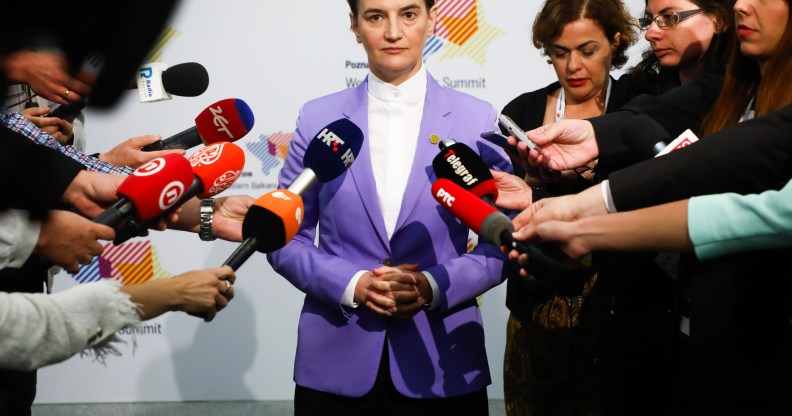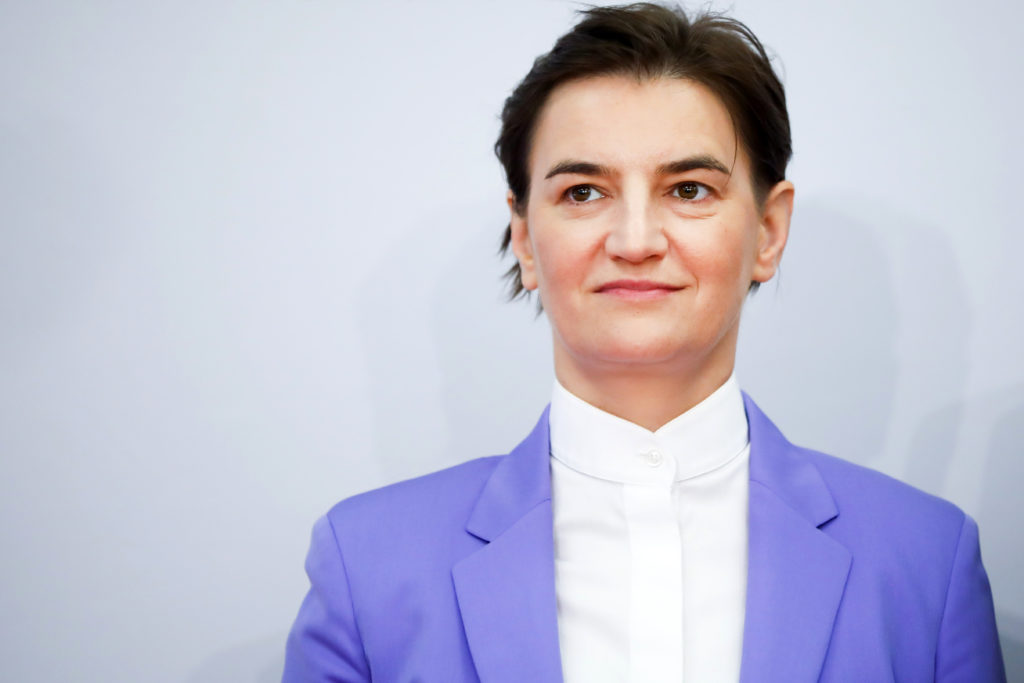Despite lesbian PM, Serbia bans IVF for people with ‘history of homosexual relations’

Ana Brnabic, Prime Minister of Serbia, during Western Balkans Summit at the Poznan International Fair in Poznan, Poland on 5 July, 2019. (Beata Zawrzel/NurPhoto via Getty Images)
Despite having a lesbian Prime Minister, Serbia has placed restrictions on gay people having children by IVF.
The country’s right-wing government, which is led by out politician Ana Brnabic, has moved to impose restrictions on LGBT+ families.
According to Radio Free Europe, health minister Zlatibor Loncar has imposed rules banning artificial insemination and IVF for anyone who has a “history of homosexual relations during the last five years.”
Serbia IVF rules ‘violate discrimination laws’
LGBT+ rights groups have filed a challenge against the provisions, which they argue violate laws banning discrimination based on sexual orientation.
Dragoslava Barzut, of LGBT+ rights group De Se Zna! told the outlet: “This bylaw violates the Law on the Prohibition of Discrimination as well as the Constitution of the Republic of Serbia.
“It is not in line with other legal documents and other laws. Therefore, it should be revised.”
Brnabic herself welcomed a son, Igor, in February, after her partner Milica Djurdjic became pregnant though artificial insemination.
Although a bill to provide some basic recognition of same-sex relationships has been proposed in the country, it does not extend adoption rights to same-sex couples, many of whom have to go elsewhere to have children.
Serbia’s Prime Minister Ana Brnabic is one of three out world leaders
Brnabic was appointed as the country’s PM by Serbia’s conservative President Aleksandar Vučić in 2017, making her one of three out leaders in office around the world today.
The other two openly gay leaders, Ireland’s Leo Varadkar and Luxembourg’s Xavier Bettel, both serve in countries that have made substantial progress on LGBT rights, while the legal situation remains bleak for couples in Serbia.

Ana Brnabic, Prime Minister of Serbia during Western Balkans Summit at the Poznan International Fair in Poznan, Poland on 5 July, 2019. (Beata Zawrzel/NurPhoto via Getty Images)
Brnabic insists her sexuality has never been an issue in the country, although she has faced homophobic jibes from her own ministers in the past.
She said: “I’ve been openly gay throughout my life and I’ve never had a problem in Serbia. I would like to think that Serbia is not that conservative or homophobic, or xenophobic for that matter.
“There’s certainly room to improve and change and there’s certainly still people who think, ‘this is not okay, that this is not part of our tradition and part of our accepted values’, but I do think that they are a minority. A loud minority, granted, but a minority.
“I do feel I have huge support from the people in Serbia.”
In 2017, Brnabic marched in Belgrade’s Pride parade, marking a first for a head of government.
She told reporters that she wanted to take part in the march to signal a move towards a more diverse Serbia.
Brnabic said: “The government is here for all citizens and will secure the respect of rights for all citizens.
“We want to send a signal that diversity makes our society stronger, that together we can do more.”

